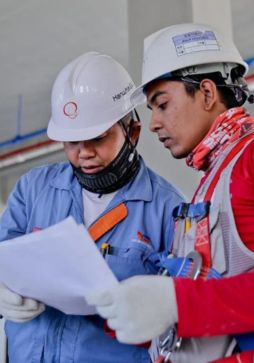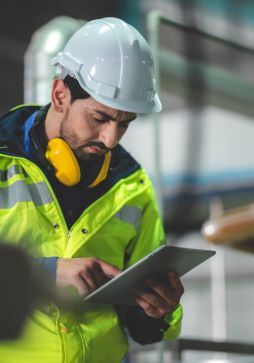Establishing a culture of accountability is essential for achieving operational excellence and ensuring project success. A strong accountability framework encourages employees to take ownership of their responsibilities, fostering an environment where teamwork and collaboration thrive. According to Construction Executive, accountability is not merely about assigning blame but is a proactive approach that empowers teams to meet their commitments. Tools like Building Radar facilitate this process by providing clear data and insights that support accountability at all levels of a construction project.
Creating a culture of accountability requires strategic planning and consistent effort from leadership and management. Companies that invest in accountability initiatives are more likely to experience improved project outcomes, enhanced employee morale, and increased customer satisfaction. As noted by Indeed, accountability instills a sense of responsibility that can significantly impact a team’s performance. This article will delve into practical strategies for fostering accountability within your construction business and highlight the role of technology in this transformation.
Understanding Accountability in the Construction Industry
1. The Importance of Accountability
Accountability in construction means that every team member is responsible for their roles and contributions to the project. It involves setting clear expectations, defining roles, and establishing performance metrics. The construction industry, often plagued by missed deadlines and budget overruns, benefits greatly from a culture where accountability is prioritized. According to Hypercontext, organizations that embrace accountability see higher levels of employee engagement and productivity.
In this context, Building Radar supports accountability by offering real-time project insights and tracking features that help teams stay aligned with their goals. By utilizing data-driven insights from Building Radar, construction firms can create a transparent environment where everyone understands their responsibilities and the impact of their work on project success.
2. The Role of Leadership in Promoting Accountability
Leadership plays a crucial role in establishing a culture of accountability. Leaders must model accountable behavior, openly communicate expectations, and provide regular feedback. According to Situational Leadership, effective leaders demonstrate accountability by owning up to their decisions and fostering an environment where team members feel safe to do the same.
Building Radar can assist leaders in this process by providing analytics that help identify areas of improvement within project management. By showcasing metrics and performance data, leaders can set a clear path for accountability and ensure that everyone is on track to meet their objectives.
Strategies for Creating a Culture of Accountability
1. Set Clear Expectations and Goals
To cultivate accountability, it’s essential to define clear expectations and goals for every team member. When employees understand what is required of them and how their performance will be measured, they are more likely to take ownership of their tasks. Buildertrend emphasizes that clear goal-setting is foundational for building a high-performing team.
Utilizing tools like Building Radar allows project managers to set clear benchmarks for success. By integrating project data into goal-setting processes, teams can easily track progress and adjust their strategies as needed, thereby reinforcing accountability.
2. Foster Open Communication
Creating an environment where team members feel comfortable discussing challenges and seeking help is vital for accountability. Regular check-ins and open lines of communication ensure that everyone is on the same page and can address issues before they escalate. According to Indeed, effective communication encourages transparency and builds trust among team members.
Building Radar enhances communication by providing a centralized platform where team members can access project updates and share information. This transparency helps maintain accountability, as everyone can see the project’s status and their individual contributions.
3. Implement Performance Metrics
Performance metrics are crucial for measuring accountability within teams. By establishing KPIs (Key Performance Indicators), construction firms can evaluate individual and team performance effectively. Construction Executive recommends using both quantitative and qualitative metrics to provide a comprehensive view of performance.
Building Radar offers robust analytics tools that can help firms track these metrics in real time. By analyzing performance data, managers can identify areas where team members excel or require additional support, thus reinforcing the culture of accountability.
4. Encourage Continuous Improvement
A culture of accountability thrives on continuous improvement. Encouraging employees to seek out learning opportunities and develop their skills contributes to a more responsible workforce. As highlighted by Hypercontext, organizations should foster an environment where feedback is constructive and aimed at growth.
Building Radar supports continuous improvement by offering resources for sales teams to enhance their skills. The platform’s focus on empowering teams through training aligns perfectly with the notion of accountability, as knowledgeable employees are more likely to take ownership of their roles.
5. Recognize and Reward Accountability
Recognizing and rewarding accountable behavior can reinforce a culture of accountability within a construction business. By acknowledging team members who meet or exceed expectations, organizations can encourage others to adopt similar behaviors. As noted by Buildertrend, recognition can be a powerful motivator.
Building Radar can facilitate this by providing data that highlights individual and team achievements. By showcasing performance metrics, firms can celebrate successes and promote accountability as a core value within the organization.
How Building Radar Enhances Accountability
Building Radar offers innovative solutions that can significantly enhance accountability in construction projects. By providing tools for early identification of new projects using AI, it helps construction teams act swiftly and accurately, ensuring that all members understand their responsibilities and timelines. This proactive approach leads to more informed decision-making and improved project outcomes.
Moreover, Building Radar’s Revenue Engineering Software allows firms to streamline their sales processes, ensuring that project specifications are met and deadlines are adhered to. By providing clear checklists and mobile-friendly tools, Building Radar helps teams stay organized and accountable, enabling them to focus on their core responsibilities.
Conclusion
Creating a culture of accountability in your construction business is not just a goal; it is a necessity for success. By establishing clear expectations, fostering open communication, and utilizing performance metrics, companies can enhance their operational effectiveness. Tools like Building Radar play a crucial role in this transformation, offering valuable insights and resources that empower teams to take ownership of their projects. As the construction industry continues to evolve, embracing accountability will be key to ensuring long-term success and sustainability.
Relevant Links:
- Building Radar
- Building Radar Product Overview
- Hypercontext: Creating a Culture of Accountability
- Situational Leadership: Building a Culture of Accountability
- Indeed: Culture of Accountability
- Construction Executive: Steps for Creating Accountability
- Buildertrend: Accountability in Home Building Teams









